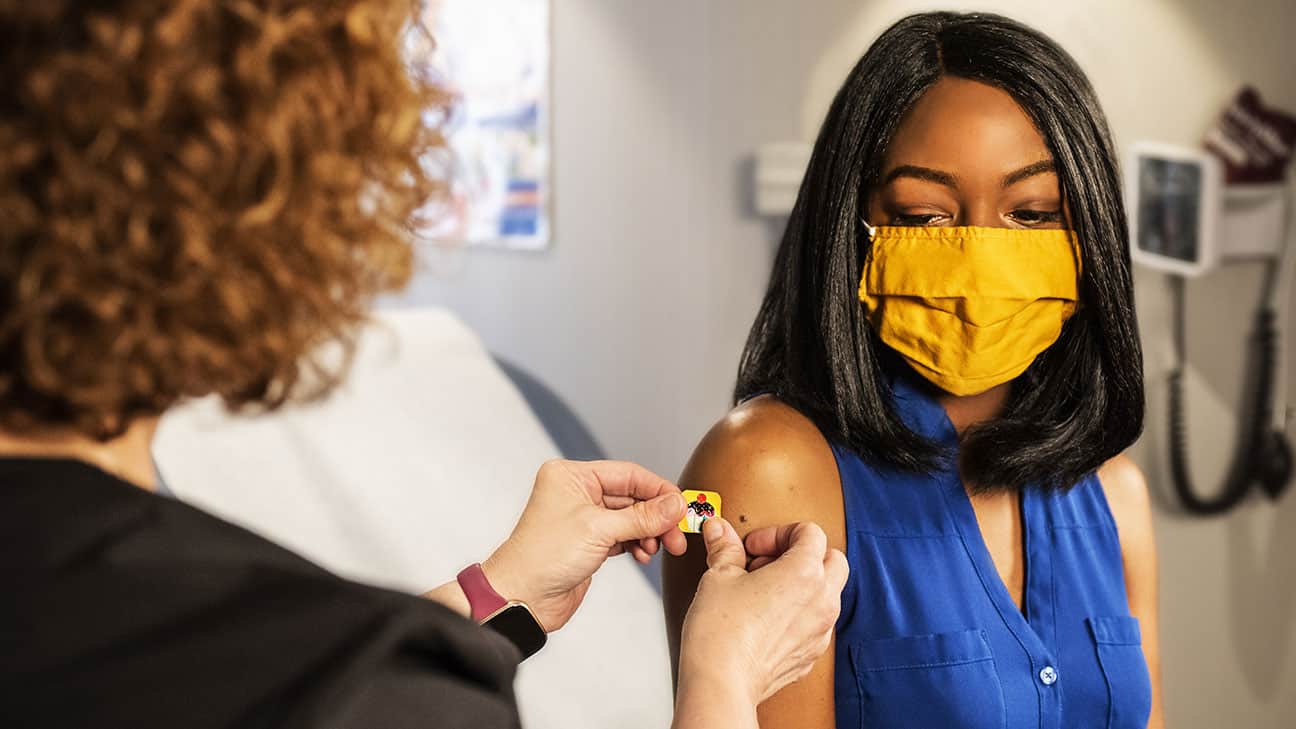
August is National Immunization Awareness Month. When you get vaccinated, your immune system makes protective antibodies that fight viruses or bacteria to keep you from getting sick if you are exposed to them in the future.
Sharing the importance of vaccinations during National Immunization Awareness Month
Published August 1, 2022By Chris Jennings
Beginning in 2013, August has been set aside as Immunization Awareness Month. The national observance is used to bring awareness of the importance of vaccines and how families can use them to keep members of all ages safe.
Vaccines have proven to be one of the greatest tools available for preventing diseases in children. On-time vaccination throughout childhood helps provide immunity before children are exposed to potentially life-threatening diseases.
When you get vaccinated, your immune system makes protective antibodies that fight viruses or bacteria to keep you from getting sick if you are exposed to them in the future. The vaccine trains your immune system to attack the virus or bacteria. For example, if you’ve been vaccinated against measles and are later exposed to someone with it, your body remembers how to fight it off.
Brandi Burris, BSN, R.N. with the Choctaw Nation, says, “Immunizations prevent the spread of disease; they protect our families and our communities.”
Because some vaccines work so well, some parents no longer worry about some of the diseases they were designed to prevent. That’s a dangerous attitude.
In 2019, the U.S. saw its largest measles outbreak since 1992. That shows how quickly a disease can spread when children aren’t vaccinated.
Whooping cough (pertussis) is another.
In 2012, the most recent peak year, despite being vaccine-preventable, CDC reported 48,277 cases of pertussis in the United States. This is the largest number of cases reported in the United States since 1955 when public health experts reported 62,786 cases.
If you’re an expecting mother, vaccines can be used to pass on immunity to your child.
If you get the flu while pregnant, premature labor and delivery risk increases. Changes in the immune system, heart, and lungs during pregnancy also make pregnant women more prone to severe illness if they catch the flu.
“Pregnant women can receive certain immunizations. Tdap (tetanus, diphtheria and pertussis) and flu are recommended. Pregnant women may also receive a COVID vaccine,” said Burris.
A flu vaccine during any trimester protects the mother and child and provides the baby with critical protection for the first few months before they can get vaccinated.
Thanks to the Tdap vaccine, few Americans today know what a horrible disease diphtheria is, but at the turn of the 20th century, it was known as “the strangling angel of children.”
On top of the required school vaccinations, viruses are currently circulating that could affect your children many years from now.
Starting around adolescence, kids can begin to be vaccinated against is Human Papillomavirus (HPV). Burris says almost everyone will be exposed to HPV at some point in their lifetime but getting vaccinated can prevent infections that could lead to cancer.
The HPV vaccine protects against six kinds of cancer (cervical, anal, back of the throat, penile, vaginal and vulvar) that are caused by infection with HPV.
Burris said the threat from HPV is serious.
“There are more than 42 million Americans that are currently infected with HPV, and every year, we get 13 million new infections, 36,000 of those cause cancer,” she said.
Although vaccination rates have been rising since the first HPV vaccine was approved by the Food and Drug Administration (FDA) in 2006, the U.S. Department of Health and Human Services says that only 59% of 13- to 17-year-olds were fully vaccinated in 2020.
Because HPV is often thought of as a sexually transmitted infection, many parents don’t believe their kids need the vaccine.
“Some of them [parents] already have their mind made up that they’re not going to let their kids get the HPV vaccine. Then when we do a little education and give them some information, they’ll eventually get the vaccine,” said Burris.
There’s no test for HPV, so most people with HPV don’t know they have the infection. Many people won’t know until years later when they develop cancer. That’s why vaccination is essential at an early age.
Some parents cite safety concerns as their reason not to get the HPV vaccine for their kids. According to the Vaccine Adverse Event Reporting System (VAERS), a website operated by the CDC and FDA, reports of health issues following HPV vaccination have gone down. From 2015 to 2018, reports of serious health issues after HPV vaccination were consistently rare, around 1.8 per 100,000 HPV vaccine doses or 0.0018%.
Adults need to be aware of their vaccines too. Everyone should get a flu vaccine every year before the end of October, if possible. Adults need a tetanus-diphtheria vaccine every ten years. Healthy adults 50 years and older should get the shingles vaccine. Adults 65 years or older need one dose of pneumococcal conjugate vaccine followed by one dose of pneumococcal polysaccharide vaccine.
Adults younger than 65 with certain health conditions like heart disease, diabetes, cancer or HIV should also get one or both of these vaccines. You may need other vaccines based on health conditions, job, lifestyle or travel habits.
“You can call any of the community health nurses in your area, and we can look up your chart and let you know what you’re due for. You can also call your primary care physician’s nurse, and she can also look that up and let you know what immunizations you’re due for,” said Burris.